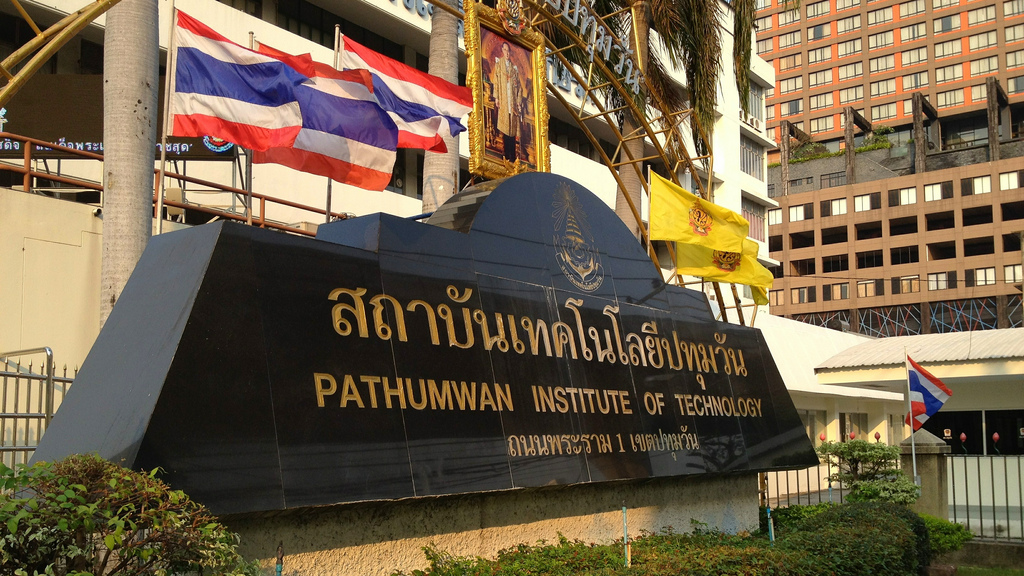Thailand is an amazing country with incredible biodiversity and a unique Southeast Asian culture.
For those of you who come from a Western country – or, at the very least, a country with a highly Westernised culture – making the move to Thailand as an expatriate is going to be a bit of a challenge.
You will have to make a lot of changes to the things you were already used to back home, like the food and the climate.
If you brought your family along for the ride, you will have a bit more to worry about, and one of them is education.
In this article, we will be discussing the Thai education system, how it works, and how you or a family member can enroll in it as a student.

Pre-Primary & Primary Education
Depending on where you read it from, the Thai education system has a length of 12 or 15 years. But don’t get confused; the three-year discrepancy actually refers to the pre-primary level (or anuban), which is entirely optional.
Pre-primary school lasts around two to three years and should be the same as preschool or pre-K in the American education system.
Compulsory education starts in primary school, known in Thailand as prathom. Primary education starts when the child is around 6 years old and has 6-grade levels that are divided into two subgroups.
Prathom 1 to 3 are for children around the ages of 6 to 8, and Prathom 4 to 6 are for children aged 9 to 11.

Secondary Education
Secondary education in Thailand – referred to locally as Matthayom – is again composed of 6-grade levels, which are divided into two groups of three grade levels each.
Matthayom I to III (or MS 1 to 3), sometimes referred to as the lower secondary level, includes grades 7 to 9 for children around 12 to 14 years old.
Beyond this is the upper secondary level, which is a bit less straightforward. The Thai government only mandates education up until grade 9, thereby making the upper secondary level (grades 10 to 12) optional.
Students who want to pursue upper secondary education have two options; the first is standard secondary education (referred to as Matthayom IV to VI or MS 4 to 6), which will award the student with a Certificate of Secondary Education upon completion; alternatively, the student can instead enroll in a vocational program that also lasts three years, but instead awards a Certificate of Vocational Education upon completion.
Tertiary Education
Once the student has completed secondary education, he or she now has a wide variety of options should they choose to pursue higher education.
Below the bachelor’s degree level, you can take a two or three-year course and acquire an associate’s degree, or enroll in a technical or vocational program and graduate with the corresponding certification after three years.
If you enrolled in either of these courses, the Thai education system actually gives you the option to continue on to a bachelor’s degree by studying at a university or college for another two years.
Standard undergraduate degrees, meanwhile, still take the typical 4 years for most courses, while a select few courses like Architecture take 5 years and medical degrees (including Dentistry and Veterinary Medicine) take 6 years.
The postgraduate level includes the Master’s degree, which can be acquired after two more years of study on top of an undergraduate degree, while Doctoral degrees push the envelope further as the highest level of academic credentials.

Going to School
Now that you know how the Thai education system works, it’s time to pack your kids’ bags and take them to school. From here you have two options.
The first option is a public school. The Thai government offers free tuition in all public schools in the country from anuban all the way to MS 6, which is equivalent to preschool all the way to grade 12 in the Western system.
This privilege is only reserved for Thai nationals, however, so this may be out of your reach as an expatriate unless your child was born in Thailand or you married a Thai national.
Luckily, going the public education route is not completely out of reach if you fail to meet either of the aforementioned requirements – you will simply have to go through a few more steps.
Foreign students will have to pay the tuition fee on top of the school’s standard miscellaneous fees, as well as what is known as a “capital fee” and a registration fee. On top of that, you may need to submit additional documents to the school.
The fees and documentation you need to hand over to the schools will vary widely depending on your location and the school itself, so it is best for you to go to the school in person and ask directly.
On top of the fees, Thai public schools also pose other problems once your child has already enrolled. Most Thai public schools only teach in the Thai language (with some schools offering English classes for an additional fee).
Unless your child has sufficient proficiency in Thai, he or she will likely have a hard time keeping up with the lessons in class.
If that is the case, your next option is a private school or an international school. International schools in particular are guaranteed to teach in English, and will most likely offer Thai language lessons for students who aren’t well-versed in the language.
Because these schools are funded privately, they may also offer more advanced facilities compared to public schools.
The only caveat to all of this is that, like all private and international schools, they will no doubt be more expensive than public schools.
Moving to a new place will always be difficult for any child. This is much more so when you come to Thailand from, say, North America or Europe.
But with a little bit of time to adjust, and by doing your research, you can get your kids well accustomed to the new sights and smells, and they will have a lot more fun in their time in Thailand.
**Please note that this post may contain affiliate links. When booking through one of our links, we earn a small kickback at no extra cost to you and it’s a big help to keep the site up and running.








